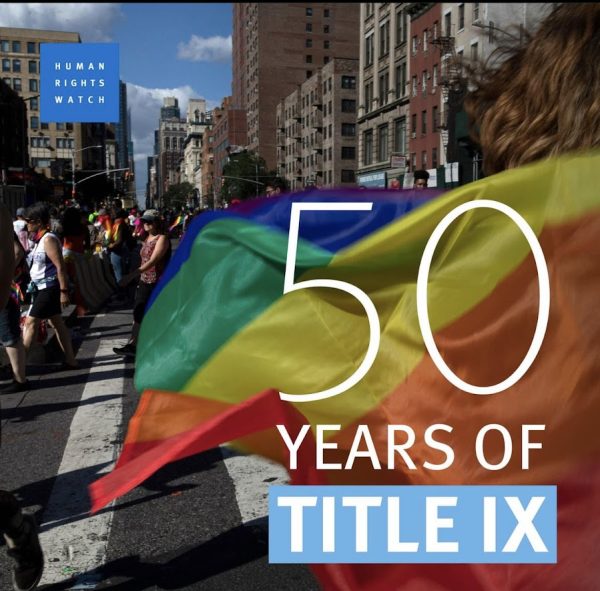A ban on women’s rights
The right to choose is a right not explicitly written in the U.S. Constitution, but one that is important to a majority of women in the nation. A recent poll by NBC News shows that 59% of women believe abortions should remain legal while 39% of women believe they should not be. These numbers did not sway Texas lawmakers from successfully illegalizing abortion.
On Sept. 1, Texas legislature, declined to be commented on by the Supreme Court, goes into place that makes it illegal for women to have an abortion after cardiac activity is detected during the pregnancy, which is roughly around six weeks.
One of the main reasons this law has been able to pass is because Texas lawmakers shaped it so that women can no longer be punished for getting an abortion; instead, the people helping them are the target. These people include clinic workers, doctors, anyone who helps pay for it, or someone that provides transportation to the procedure.
Texas Right to Life member John Seago said, “These lawsuits are not against the women… The lawsuits would be against the individuals making money off of the abortion, the abortion industry itself. So this is not spy on your neighbor and see if they’re having an abortion.”
However, if someone does sue an abortion provider and wins, they could receive up to $10,000. While it may not directly be a law against women, it indirectly is. The resources a woman has access to for abortion are being cut off by threatening people helping them and offering rewards for doing so.
One of the cruelest aspects of this new law is the lack of support it provides for victims of rape or incest. According to the American Pregnancy Organization, most women don’t realize they are pregnant until between four to seven weeks. Women who have been through these traumatic events could, hypothetically, not know about the pregnancy with their abuser’s child until it is too late.
Surveys in 1987 and 2004 showed that 1% of women received an abortion because they were raped, and 0.5% received one because of incest. While these numbers may be low, these women still matter. Women should be able to receive an abortion safely and legally for whatever reason they choose, but especially if the baby can be a reminder of their trauma for the rest of their lives.
The Texas Tribune says that this abortion law is one of the strictest the U.S. has seen pass and actually remain in legislation. However, it is unlikely that other states will not follow suit. Seago said his “organization is working with activists in multiple states who are eager to replicate this model if it succeeds in blocking access to most abortions in Texas,” according to NPR.
More states will join in; this could also trigger attacks on the 1973 Supreme Court case, Roe v. Wade, a landmark case that ruled that pregnant women who choose to have an abortion are protected by the U.S. Constitution. Many pro-life activist groups, including Right to Life and Susan B Anthony List, have fought against this case for years, and now that one strict abortion law has passed and been declined to argue by the Supreme Court, it is likely they will just fight harder.
A 36-year-old female from San Juan stated her opinion to Glamour, saying the hypocrisy in the Texas legislation and the anger women feel against the Texas government, “Masks are a violation of the [men’s] “right to choose” and should be banned… that’s the position of the Texas government. But women’s bodies aren’t theirs to control, apparently. Can you believe that? This law reeks of hypocrisy. If the law affected men, there would be no way it would have made it past the legislature.”
There is already a women’s march being planned nationwide in October to fight back and rally against this unjust law. The rally will take place Oct. 2, 2021, just two days before the Supreme Court reconvenes.




